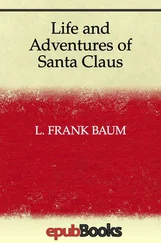Charles Dickens - Life And Adventures Of Martin Chuzzlewit
Здесь есть возможность читать онлайн «Charles Dickens - Life And Adventures Of Martin Chuzzlewit» весь текст электронной книги совершенно бесплатно (целиком полную версию без сокращений). В некоторых случаях можно слушать аудио, скачать через торрент в формате fb2 и присутствует краткое содержание. Жанр: Классическая проза, на английском языке. Описание произведения, (предисловие) а так же отзывы посетителей доступны на портале библиотеки ЛибКат.
- Название:Life And Adventures Of Martin Chuzzlewit
- Автор:
- Жанр:
- Год:неизвестен
- ISBN:нет данных
- Рейтинг книги:5 / 5. Голосов: 1
-
Избранное:Добавить в избранное
- Отзывы:
-
Ваша оценка:
- 100
- 1
- 2
- 3
- 4
- 5
Life And Adventures Of Martin Chuzzlewit: краткое содержание, описание и аннотация
Предлагаем к чтению аннотацию, описание, краткое содержание или предисловие (зависит от того, что написал сам автор книги «Life And Adventures Of Martin Chuzzlewit»). Если вы не нашли необходимую информацию о книге — напишите в комментариях, мы постараемся отыскать её.
Life And Adventures Of Martin Chuzzlewit — читать онлайн бесплатно полную книгу (весь текст) целиком
Ниже представлен текст книги, разбитый по страницам. Система сохранения места последней прочитанной страницы, позволяет с удобством читать онлайн бесплатно книгу «Life And Adventures Of Martin Chuzzlewit», без необходимости каждый раз заново искать на чём Вы остановились. Поставьте закладку, и сможете в любой момент перейти на страницу, на которой закончили чтение.
Интервал:
Закладка:
Mr Jefferson Brick followed in the Rowdy Journal's footsteps without returning any answer. Martin took the same course, thinking as he went, that perhaps the free and independent citizens, who in their moral elevation, owned the colonel for their master, might render better homage to the goddess, Liberty, in nightly dreams upon the oven of a Russian Serf.
The colonel led the way into a room at the back of the house upon the ground-floor, light, and of fair dimensions, but exquisitely uncomfortable; having nothing in it but the four cold white walls and ceiling, a mean carpet, a dreary waste of dining-table reaching from end to end, and a bewildering collection of cane-bottomed chairs. In the further region of this banqueting-hall was a stove, garnished on either side with a great brass spittoon, and shaped in itself like three little iron barrels set up on end in a fender, and joined together on the principle of the Siamese Twins. Before it, swinging himself in a rocking-chair, lounged a large gentleman with his hat on, who amused himself by spitting alternately into the spittoon on the right hand of the stove, and the spittoon on the left, and then working his way back again in the same order. A negro lad in a soiled white jacket was busily engaged in placing on the table two long rows of knives and forks, relieved at intervals by jugs of water; and as he travelled down one side of this festive board, he straightened with his dirty hands the dirtier cloth, which was all askew, and had not been removed since breakfast. The atmosphere of this room was rendered intensely hot and stifling by the stove; but being further flavoured by a sickly gush of soup from the kitchen, and by such remote suggestions of tobacco as lingered within the brazen receptacles already mentioned, it became, to a stranger's senses, almost insupportable.
The gentleman in the rocking-chair having his back towards them, and being much engaged in his intellectual pastime, was not aware of their approach until the colonel, walking up to the stove, contributed his mite towards the support of the left-hand spittoon, just as the major—for it was the major—bore down upon it. Major Pawkins then reserved his fire, and looking upward, said, with a peculiar air of quiet weariness, like a man who had been up all night—an air which Martin had already observed both in the colonel and Mr Jefferson Brick—
“Well, colonel!”
“Here is a gentleman from England, major,” the colonel replied, “who has concluded to locate himself here if the amount of compensation suits him.”
“I am glad to see you, sir,” observed the major, shaking hands with Martin, and not moving a muscle of his face. “You are pretty bright, I hope?”
“Never better,” said Martin.
“You are never likely to be,” returned the major. “You will see the sun shine HERE.”
“I think I remember to have seen it shine at home sometimes,” said Martin, smiling.
“I think not,” replied the major. He said so with a stoical indifference certainly, but still in a tone of firmness which admitted of no further dispute on that point. When he had thus settled the question, he put his hat a little on one side for the greater convenience of scratching his head, and saluted Mr Jefferson Brick with a lazy nod.
Major Pawkins (a gentleman of Pennsylvanian origin) was distinguished by a very large skull, and a great mass of yellow forehead; in deference to which commodities it was currently held in bar-rooms and other such places of resort that the major was a man of huge sagacity. He was further to be known by a heavy eye and a dull slow manner; and for being a man of that kind who—mentally speaking—requires a deal of room to turn himself in. But, in trading on his stock of wisdom, he invariably proceeded on the principle of putting all the goods he had (and more) into his window; and that went a great way with his constituency of admirers. It went a great way, perhaps, with Mr Jefferson Brick, who took occasion to whisper in Martin's ear:
“One of the most remarkable men in our country, sir!”
It must not be supposed, however, that the perpetual exhibition in the market-place of all his stock-in-trade for sale or hire, was the major's sole claim to a very large share of sympathy and support. He was a great politician; and the one article of his creed, in reference to all public obligations involving the good faith and integrity of his country, was, “run a moist pen slick through everything, and start fresh.”This made him a patriot. In commercial affairs he was a bold speculator. In plainer words he had a most distinguished genius for swindling, and could start a bank, or negotiate a loan, or form a land-jobbing company (entailing ruin, pestilence, and death, on hundreds of families), with any gifted creature in the Union. This made him an admirable man of business. He could hang about a bar-room, discussing the affairs of the nation, for twelve hours together; and in that time could hold forth with more intolerable dulness, chew more tobacco, smoke more tobacco, drink more rum-toddy, mint-julep, gin-sling, and cocktail, than any private gentleman of his acquaintance. This made him an orator and a man of the people. In a word, the major was a rising character, and a popular character, and was in a fair way to be sent by the popular party to the State House of New York, if not in the end to Washington itself. But as a man's private prosperity does not always keep pace with his patriotic devotion to public affairs; and as fraudulent transactions have their downs as well as ups, the major was occasionally under a cloud. Hence, just now Mrs Pawkins kept a boarding-house, and Major Pawkins rather “loafed” his time away than otherwise.
“You have come to visit our country, sir, at a season of great commercial depression,” said the major.
“At an alarming crisis,” said the colonel.
“At a period of unprecedented stagnation,” said Mr Jefferson Brick.
“I am sorry to hear that,” returned Martin. “It's not likely to last, I hope?”
Martin knew nothing about America, or he would have known perfectly well that if its individual citizens, to a man, are to be believed, it always IS depressed, and always IS stagnated, and always IS at an alarming crisis, and never was otherwise; though as a body they are ready to make oath upon the Evangelists at any hour of the day or night, that it is the most thriving and prosperous of all countries on the habitable globe.
“It's not likely to last, I hope?” said Martin.
“Well!” returned the major, “I expect we shall get along somehow, and come right in the end.”
“We are an elastic country,” said the Rowdy Journal.
“We are a young lion,” said Mr Jefferson Brick.
“We have revivifying and vigorous principles within ourselves,” observed the major. “Shall we drink a bitter afore dinner, colonel?”
The colonel assenting to this proposal with great alacrity, Major Pawkins proposed an adjournment to a neighbouring bar-room, which, as he observed, was “only in the next block.”He then referred Martin to Mrs Pawkins for all particulars connected with the rate of board and lodging, and informed him that he would have the pleasure of seeing that lady at dinner, which would soon be ready, as the dinner hour was two o'clock, and it only wanted a quarter now. This reminded him that if the bitter were to be taken at all, there was no time to lose; so he walked off without more ado, and left them to follow if they thought proper.
When the major rose from his rocking-chair before the stove, and so disturbed the hot air and balmy whiff of soup which fanned their brows, the odour of stale tobacco became so decidedly prevalent as to leave no doubt of its proceeding mainly from that gentleman's attire. Indeed, as Martin walked behind him to the bar-room, he could not help thinking that the great square major, in his listlessness and langour, looked very much like a stale weed himself; such as might be hoed out of the public garden, with great advantage to the decent growth of that preserve, and tossed on some congenial dunghill.
Читать дальшеИнтервал:
Закладка:
Похожие книги на «Life And Adventures Of Martin Chuzzlewit»
Представляем Вашему вниманию похожие книги на «Life And Adventures Of Martin Chuzzlewit» списком для выбора. Мы отобрали схожую по названию и смыслу литературу в надежде предоставить читателям больше вариантов отыскать новые, интересные, ещё непрочитанные произведения.
Обсуждение, отзывы о книге «Life And Adventures Of Martin Chuzzlewit» и просто собственные мнения читателей. Оставьте ваши комментарии, напишите, что Вы думаете о произведении, его смысле или главных героях. Укажите что конкретно понравилось, а что нет, и почему Вы так считаете.









